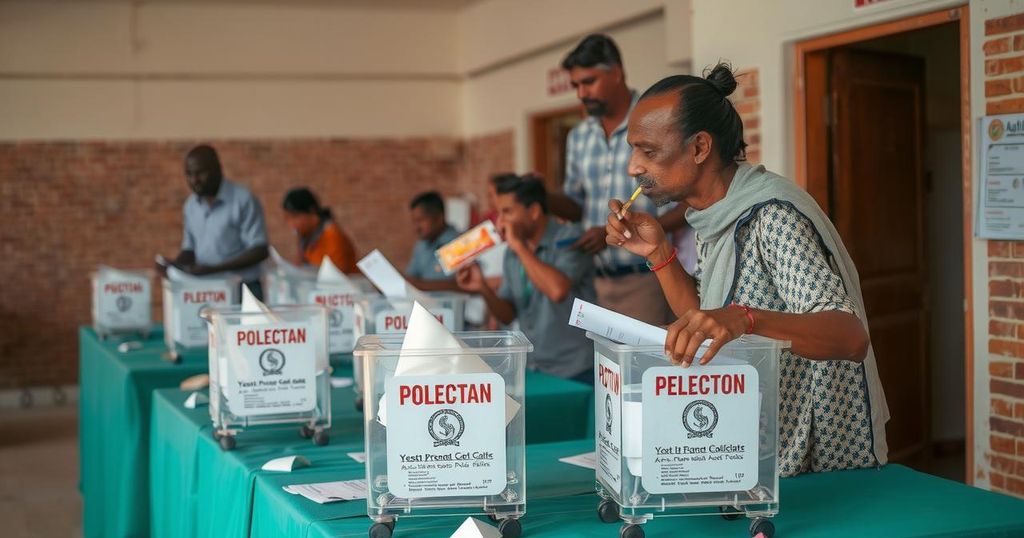Chad conducts its first parliamentary election in 13 years amid widespread opposition boycott claims. Voter turnout has been low, particularly in the capital, as opposition parties allege that election outcomes were predetermined. President Deby has called for high voter participation, while skepticism remains among the electorate regarding the election’s integrity. Amidst allegations of electoral fraud, the backdrop involves socio-economic challenges and security threats, particularly from Boko Haram.
Voting is currently taking place in Chad, marking the first parliamentary election in over a decade. This election is touted by the government as a significant milestone towards ending military governance and paving the way for a democratic transition. Voters are casting ballots for a new parliament, local councils, and provincial assemblies amidst widespread opposition calls for a boycott due to claims of pre-determined results.
In the capital city of N’Djamena, initial voter turnout appeared low as polling stations opened on Sunday, with election officials attributing the lack of participation to inclement weather. Opposition groups have strongly urged the electoral populace of approximately eight million to abstain from voting, arguing that the integrity of the elections is compromised. The political backdrop remains steeped in contention, as candidates aligned with President Mahamat Idriss Deby Itno stand to gain, following his ascension to power via military force in 2021 and his subsequent legitimization through a presidential election.
President Deby called for a significant turnout, urging citizens to embrace this electoral opportunity, which he referred to as a “historic day.” However, skepticism permeates the voting atmosphere, as leaders from opposition parties, notably Succes Masra of the Transformers party, claim that results have already been manipulated in advance. Despite the opposition’s doubts, some voters like Patrice Lumumba Deoumoundou expressed hopes for substantial change and a better future through their participation in the electoral process.
Significant numbers of soldiers, police, and nomads cast their votes a day early for logistical reasons, with the electoral agency reporting an unprecedented turnout amongst these groups. Representatives from nomadic communities articulated the pressing need for improved living conditions due to hardships exacerbated by climate change. Despite the elections presenting a potential pathway toward democracy, fraud accusations and armed conflict realities remain pressing issues, casting a shadow over the electoral proceedings.
Polling activities are being overseen by a contingent of foreign observers, as the ruling Patriotic Salvation Movement faces allegations of electoral malfeasance amidst a volatile regional context, including ongoing violence in the Lake Chad region and external diplomatic tensions.
Chad, a landlocked nation in North-Central Africa, has been under military rule since 2021 following the death of long-term ruler Idriss Deby. His son, Mahamat Idriss Deby Itno, assumed power and has been criticized for suppressing dissent and manipulating electoral processes. The current parliamentary elections, the first in 13 years, are seen as a measure to transition towards democracy. However, with opposition parties boycotting and claiming pre-election fraud, the legitimacy of this electoral process is contested. The social and economic landscape is dire, further complicated by Boko Haram insurgent activities and climate-induced displacement, placing additional strain on governance and societal stability.
The unfolding parliamentary elections in Chad underscore the complexities of transitioning from military rule to a democratic governance structure. With low participation in the face of opposition boycotts and allegations of pre-selection of candidates, the legitimacy of these elections remains questionable. As various stakeholders navigate these turbulent political waters, the implications for Chad’s future governance and stability hang in the balance, necessitating vigilant observation and engagement from both national and international actors to ensure fair electoral practices.
Original Source: www.aljazeera.com






